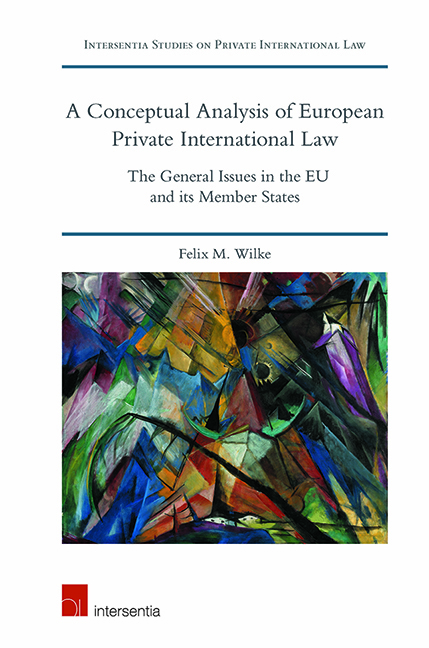 A Conceptual Analysis of European Private International Law
A Conceptual Analysis of European Private International Law Summary
The survey of the material in the preceding part has shown several parallels among the member states, as well as between the domestic and EU levels – not only as to the idea of dealing with certain issues of private international law separately from individual conflicts rules, but also as to the scope of these issues. In domestic law, they are even oft en designated as ‘general’. Only rarely, however, does a legislator or scholar give an explanation for proceeding in this way. When there is one, it is usually along the lines of the respective issues/rules being ‘technical’ and/or of relevance for the remainder of private international law.
Ordinarily, one can content oneself with such a short explanation. The distinction between ‘general’ and ‘special’ is a traditional device to structure all sorts of accounts, not just the law. In many aspects, it can (thus) be grasped intuitively and requires no further analysis. For present purposes, however, a closer look is necessary.
What is actually meant by ‘general’? What does ‘technical’ mean, and what kind of ‘relevance’ is at issue? To what extent do the resulting descriptions explain the scope of ‘general’ provisions in the (written) law and of sections on ‘general’ issues in scholarly works? If the answer to the last question is a (relatively) high percentage, the implication for the future of European (Union) private international law is twofold. First, there would be a model that could feasibly be used for all of EU private international law because it would make sense for all member states. Second, the model could direct the attention of domestic legislators, as well as that of the EU, to issues not yet on their respective agendas.
Accordingly, this part focuses on approaches to the term ‘general’. Borrowing from ideas first advanced in the context of the theory of legislation, it addresses whether and to what extent it makes sense to look at ‘general’ issues of private international law from a formal perspective (Chapter 3) and whether and to what extent it makes sense to look at them from a substantive perspective (Chapter 4). While these are not the only ways to understand ‘general’, they seem to be the most promising.
- Type
- Chapter
- Information
- A Conceptual Analysis of European Private International LawThe General Issues in the EU and its Member States, pp. 87 - 88Publisher: IntersentiaPrint publication year: 2019


